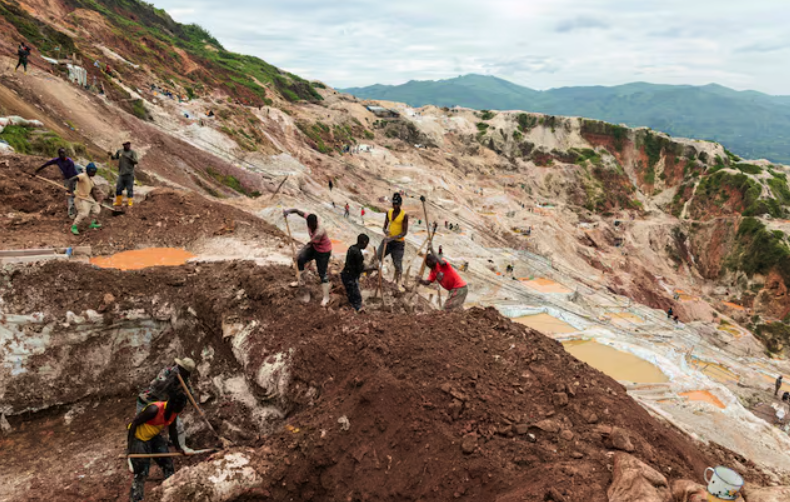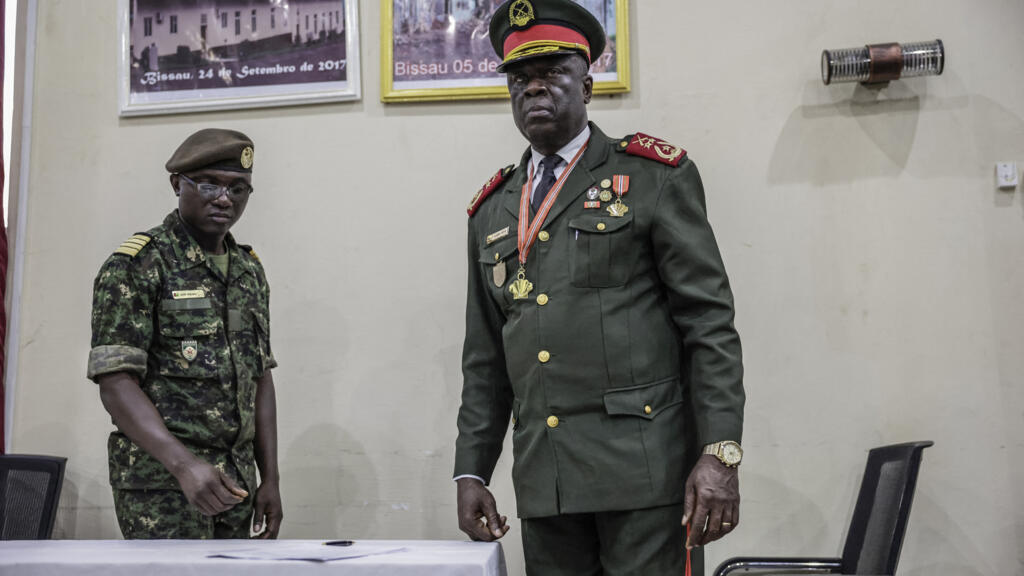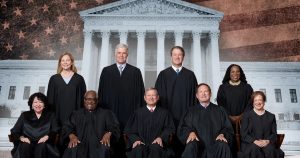Gambiaj.com – (BISSAU, Guinea-Bissau) – General Horta N’Tam, until now the Chief of Staff of Guinea-Bissau’s army, was sworn in on Thursday, November 27, as President of the Transition and head of the High Military Command, less than 24 hours after the armed forces declared they had assumed full control of the country.
The army announced the development during a press conference in Bissau, sealing what regional bodies and observers have described as a military coup at a delicate moment in the electoral process.
“I have just been sworn in to lead the High Command,” General N’Tam said after taking his oath at army headquarters, where security was heavily reinforced.
A close ally of ousted President Umaro Cissoko Embaló, N’Tam trained during Embaló’s entry into the forces and later rose to major general under his presidency.
The oath-taking ceremony, conducted without the national anthem, was held in a conference hall at army headquarters near the capital’s port, now the new center of power. Before senior officers of all three branches, the army, air force, and navy, the High Military Command proclaimed N’Tam’s “official installation” to oversee a 12-month political transition.
Detained Leaders and Widening Crackdown
Ousted President Embaló remains detained at army headquarters and has made no public statement since his arrest on Wednesday. Regional leaders are reportedly seeking a safe location for him.
Domingos Simões Pereira, veteran opposition figure and leader of the powerful PAIGC party, was also arrested on Wednesday and is being held at a central police station.
Meanwhile Fernando Díaz de Costa, the main challenger in the disputed presidential election, told RFI from hiding that he remains safe. The Guinea-Bissau League for Human Rights says eight other opposition members were detained.
Five magistrates tasked with monitoring vote counting were also arrested on Wednesday, raising further concerns over the interruption of the electoral process.
In a brief national address, General N’Tam justified the military’s seizure of power as a “joint effort” aimed at preventing instability allegedly posed by drug trafficking networks. The military also announced the reopening of the country’s borders.
Capital in Shutdown, Media Silenced
Bissau remained largely deserted on Thursday. As of Wednesday, shops were shut, streets were empty, and traffic was halted except for military convoys. Although the curfew was lifted at 6:00 a.m., few residents ventured out.
A heavy military presence was visible throughout the city, with tinted-window SUVs patrolling major routes. Media outlets remain off air except for state television and radio, which continue broadcasting messages from the new military authorities.
Residents also reported difficulties accessing the internet and making phone calls.
PAIGC urged its supporters on social media to gather outside the Ministry of the Interior to demand the release of Simões Pereira. But with the city under tight military control and communications restricted, it remains unclear whether the protest took place.
Areas surrounding the presidential palace and several neighborhoods on the outskirts of Bissau are under strict surveillance by armed soldiers.
Swift and Strong International Backlash
International reactions to the military takeover intensified throughout Thursday.
The Chairman of the ECOWAS Authority of Heads of State and Government issued a stern statement condemning “a coup d’état that illegally interrupted the electoral process at a crucial stage,” calling it a direct threat to regional stability. ECOWAS reaffirmed its zero-tolerance policy for unconstitutional changes of government and expressed deep concern for the safety of detained officials, including Embaló.
Ghana also “strongly condemned” the coup, expressing “deep bitterness at this attempt to overturn the will of the people,” referring to election results that were expected on Thursday.
Beyond West Africa, Russia voiced concern over the “deteriorating political situation in a traditionally friendly country,” while UN Secretary-General António Guterres urged restraint and a return to constitutional order.
Notably, Senegal, a regional heavyweight and Guinea-Bissau’s closest neighbor, has remained silent, raising questions about its diplomatic stance amid a rapidly unfolding crisis.
Guinea-Bissau now enters an uncertain phase, with the military entrenched in power, political leaders detained or in hiding, and an interrupted electoral process casting a long shadow over the country’s fragile democracy.










